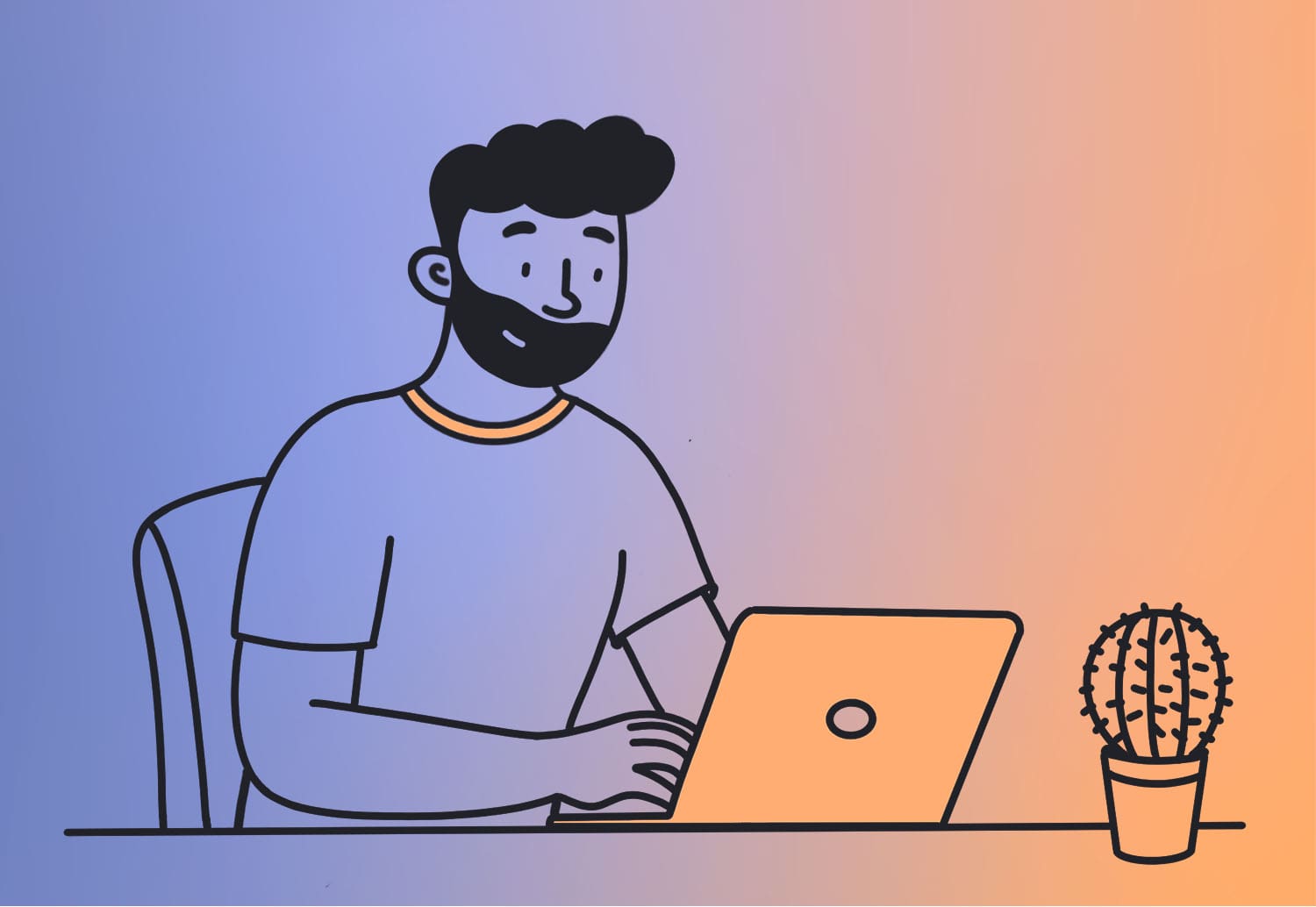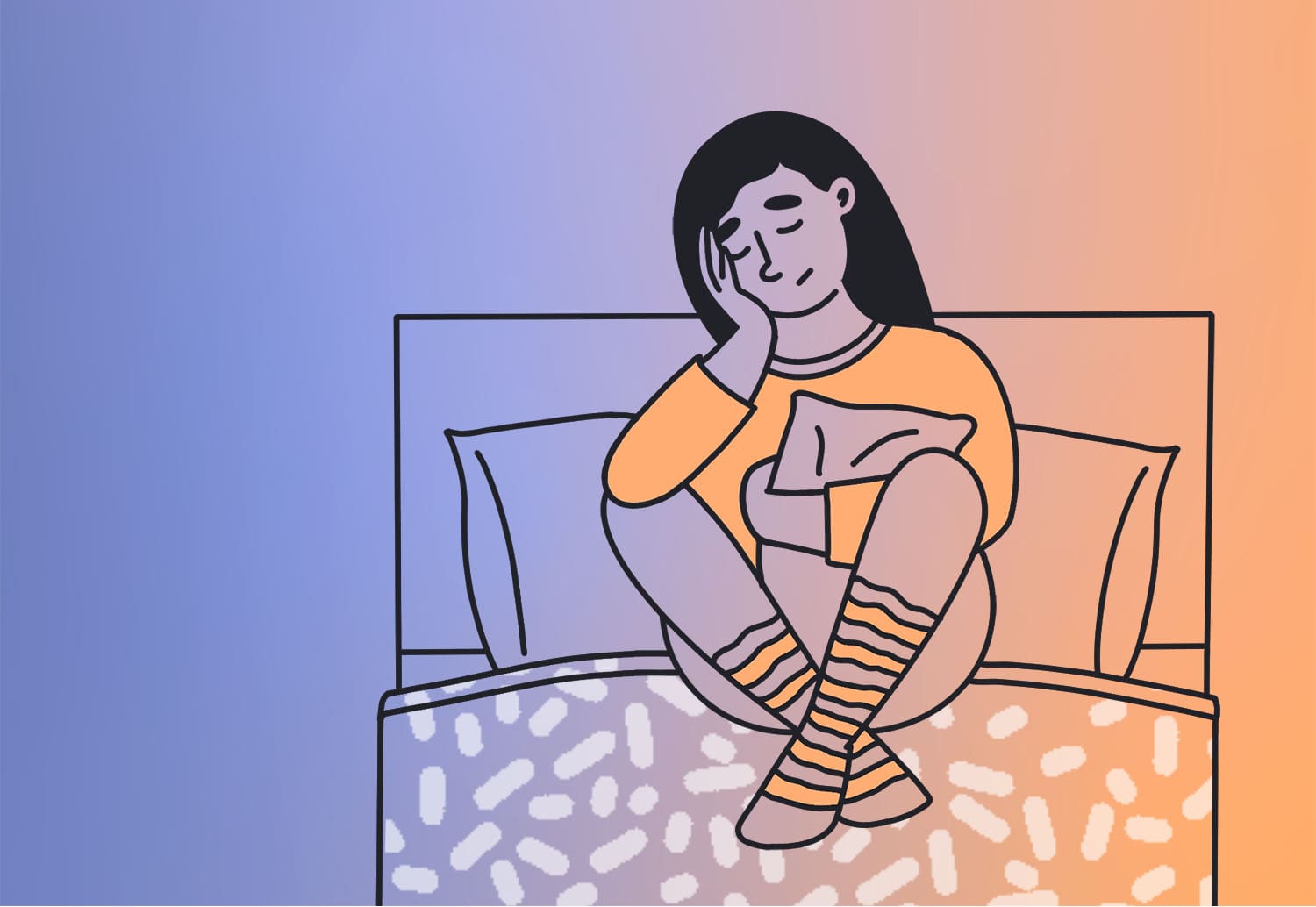From canceled trips and weddings to new routines of mask-wearing and hand-washing, the Covid-19 pandemic has thrown our lives out of whack. And perhaps nothing has been more affected than the way we work.
Per the U.S. Census Bureau, more than a third of U.S. households reported working from home more often since the pandemic began back in early 2020. While that’s been good news for everyone lucky enough to work from the safety of their own living space, it hasn’t necessarily been good for our sleep.
In fact, a survey of 2,000 people recently working from home found a whopping 70% of respondents were experiencing disrupted sleep patterns and restless sleep. While the stress of navigating a global pandemic no doubt plays a part, evidence suggests impacts on our posture and mental health may be just as much to blame.
If you’ve been struggling to sleep well while working from home, the information below is for you. We’ll walk you through the many factors that could be contributing to poor-quality sleep—plus simple, actionable tips to set you on the path to better rest.
Posture and Sleep
Many people began working from home during the pandemic without any warning, meaning they didn’t already have a home office set up. And many folks simply don’t have the space or the funds to create a dedicated workspace at home. For these reasons, a lot of people are working from less-than-ideal setups—think uncomfortable desk chairs, such as a seat at the kitchen table, or unsupportive seats such as the couch or a bed.
Unfortunately, working for hours every day without an ergonomic setup can take a toll on our bodies—and our sleep. Let’s take a closer look at the relationship between posture and sleep plus what you can do to obtain better health and sleep quality.
The Relationship Between Posture and Sleep
At first glance, your posture during daytime activities seems irrelevant to your sleep quality, right? Actually, there’s a strong correlation. That’s true for two main reasons:
- Poor daytime posture can cause or exacerbate back, shoulder, and neck pain. Not only do aches and pains make you less comfortable while going about daily life, but they also make it harder to find a comfortable position when you climb into bed. This can inhibit your ability to fall and stay asleep, thereby diminishing sleep quality.
- Poor daytime posture can lead to respiratory problems. When we slouch over our computers or phones during the day, our diaphragm doesn’t have as much room to expand our breathing capacity is diminished. Over the long term, this can make it more challenging to breathe during regular activities, including sleep. And when we’re not breathing well while sleeping, we’re more prone to nighttime wake-ups.
What You Can Do During the Day
A few simple strategies can help improve daytime posture, setting you up for a better chance of sound sleep at night.
- Avoid working from the couch and/or bed. Proper seated posture means your ears, shoulders, and hips are all lined up. That’s all but impossible to achieve while slouched over a laptop on the bed or the couch. Support healthier posture by using a workstation and chair that enable ergonomic alignment.
- Ensure your workstation is the proper height. An ergonomic workstation will make a world of difference for your posture. Aim to sit at a desk or table that allows your shoulders and arms to rest at a 90-degree angle, make sure your monitor is even with your eyes, and adjust your seat and desk positions so your ears, shoulders, and hips align.
- Make time to move. Work breaks allow the muscles that maintain your seated posture to take a break so they don’t become so fatigued that posture declines. Aim to stand up and move around approximately every 60 minutes. Simply walking to the kitchen and back is worthwhile, but you can use the time even more wisely by practicing some simple stretches and exercises that support healthy posture.
- Get some support (literally!). If you’re struggling to maintain healthy posture on your own, consider using a posture band, brace, or other assistive device. Many of these products will vibrate when you slouch, thereby training you to sit up straight. Don’t feel like paying for the help? Simply set an alarm on your phone that reminds you to check in with your posture at several points during the day.
Tips for Better Posture at Night
Just as daytime posture can impact sleep quality, so can the posture you adopt once you climb into bed. Even when you’re lying down, it’s important to keep your spine aligned; this helps prevent aches and pains and supports healthy breathing. The following tips should help.
- Invest in a quality mattress and pillow. The best mattress for back pain will support proper spinal alignment in your preferred sleep position. Back sleepers tend to feel best on a medium-firm bed, stomach sleepers require an extra supportive mattress, and side sleepers will need a bed with a bit more “give” to avoid getting jammed up around the shoulder and hip. A good pillow will support the alignment offered by your mattress without pulling your neck out of alignment with the spine.
- Try sleeping on your back. As a general rule, experts agree that sleeping on your back is best for spinal alignment. Bonus points if you use pillows to further support the spine—more on that in the next tip.
- Use pillows for extra support. No matter your preferred sleep position, bolsters and pillows can support proper sleep posture. Back sleepers could try placing a small pillow under the back of the knees to support the spine’s natural curvature, side sleepers might benefit from placing a firm pillow between their knees, and stomach sleepers could obtain better alignment with a flat pillow under their lower stomach and pelvis.
Mental Health and Sleep
Working from home offers several benefits, including time saved on commuting, better work-life balance, and more time for domestic and family commitments. But that doesn’t mean this work style is stress-free.
A review of 23 studies found that for many people, the transition to working from home has been a bumpy one, with repercussions for mental health and sleep quality. In most cases, it’s not working from home itself that poses the biggest challenges, but an employer’s attitude to this transition. For instance, employees who feel micromanaged and/or have received limited support from colleagues and supervisors are more prone to stress and fatigue. Several other factors can exacerbate stress; we’ll detail those below.
No matter the cause of work-from-home stress, one thing is clear: It can take a toll on mental health. One survey found 75% of U.S. workers have struggled with work-related anxiety since the pandemic hit, and 45% reported feeling less mentally well than they had previously.
When mental health takes a hit, sleep often does too. Research consistently finds that stress and anxiety can cause or exacerbate a variety of sleep difficulties, including making it harder to fall and stay asleep. In a vicious cycle, sleep deprivation can further inhibit mental health. Poor or inadequate sleep has been shown to increase anxiety, depression, irritability, and negative moods.
Working from Home and Stress
Working from home brings several benefits as well as unique stressors. Here are several factors that could have an impact on stress and mental health.
- Increased distractions. For parents and caregivers, working from home often means they’re frequently distracted by the demands of children and other household responsibilities. A sink full of dirty dishes, a ringing doorbell, a needy pet, or the presence of other household members can all create distractions that make it harder to focus and provoke stress.
- Lack of interaction with co-workers. One 2020 survey found that trouble collaborating and/or communicating with colleagues can exacerbate work-related stress, which can bleed over into our lives outside of work.
- Lack of boundaries between work and life. The review cited above found that when the demands of working from home get in the way of a person’s ability to maintain their home and family commitments, mental health is more likely to suffer. Blurred or nonexistent work-life boundaries are associated with lower productivity, decreased motivation, increased stress, and poorer mental health overall.
- Less time off. One of the consequences of blurring the boundaries between work and home is that people are less likely to take time off, which can take a toll on mental health. A 2021 review found many people are struggling to disconnect from work after hours and on weekends, and many folks are taking less vacation due to these blurred boundaries and the limitations on safe travel. When people don’t have the opportunity to unplug from work, they’re more prone to stress and burnout.
Why Stress Makes it Harder to Sleep
Research consistently finds that stress can cause a variety of sleep difficulties, including making it harder to fall and stay asleep. Here are several reasons why stress may negatively impact sleep quality.
- Stress triggers hormones that keep us awake. One of the primary stress hormones, cortisol, also plays a major role in several key bodily functions—including sleep. When cortisol levels remain high for extended periods of time, this can disrupt the sleep-wake cycle and provoke sleep problems including trouble falling asleep at night, diminished sleep quality, and morning grogginess.
- Stress may lead to an increase in nightmares. Stress, anxiety, depression, and other mental health issues can all increase the chances of having nightmares. In turn, nightmares can cause nighttime wake-ups and make it hard to fall back asleep in the middle of the night.
- Stress may lead to increased alcohol use. When people are stressed, it’s common to turn to alcohol to ease into sleep. But that nightcap will probably do more harm than good. Drinking alcohol before bed increases the chances of insomnia, provokes sleep disruptions (for instance, because of waking up to go to the bathroom in the middle of the night), increases the chance of experiencing nightmares, and decreases the time spent in restorative deep sleep.
The Impact of Having Your “Office” in the Bedroom
Many people who began working from home during the Covid-19 pandemic have been doing so from their bedrooms, and that can have a major negative impact on sleep.
One survey found 21% of respondents were working from their bedroom, and another survey found 72% of respondents had worked remotely from their bed at some point during the pandemic. A whopping 84% of the first survey’s respondents who reported working from their bedrooms also reported that their sleeping patterns have been disrupted or very disrupted.
As noted above, working from bed can harm a person’s daytime posture, which can reduce sleep quality at night. Working from the bedroom also blurs the lines between work and sleep. Under ideal circumstances, the bedroom should be reserved for nothing but sleep and sex so that entering the room serves as a mental cue for sleep. When you work from the bedroom all day, the opposite happens: Your brain learns to associate the space with mental activity and the stresses of work. This makes it significantly harder to unwind at night and drift into sleep.
Another factor blurring the line between work and rest? Working late. When your bedroom is your primary workspace, you could be more likely to check work emails and take care of work-related tasks late at night, which can eat into your nighttime routine, push back your bedtime, and stir up stress or anxiety that makes it harder to fall asleep.
Checking email or work texts late at night has another consequence on sleep: These activities expose you to the blue light emitted by electronics. Blue light has been shown to disrupt circadian rhythms, which regulate our sleep-wake cycles. Blue light exposure in the hours leading up to bed is especially disruptive and could make it harder to fall asleep at a reasonable hour.
Tips for Sleeping Better While Working from Home
If stress is keeping you up at night, the following guidelines could help you sleep better while working from home.
- If possible, avoid working from your bedroom. As noted above, working from your bedroom blurs the boundaries between work and rest and prevents your brain from associating the bedroom with sleep. It also increases the chances that you’ll be consumed by work stress before bed. For these reasons, it’s best to avoid working from your bedroom if at all possible. Of course, not everyone has a home office, and some people don’t have a choice but to work from their bedrooms. If you fall into that category, read on to the next tip!
- If you must work from the bedroom, follow these tips:
- Set and follow clear boundaries about work hours. Establish firm start and end times for each workday, and stick to them. End the workday at least a couple hours before bedtime so your brain has time to unwind. If you’re stressed about late-night work emails, set up an autoresponder that alerts the sender to your regular working hours. Struggling to enforce these boundaries? Enlist a friend or family member to hold you accountable.
- Ensure your room is clutter-free. If you’re working from your bedroom, it’s easy for work-related documents and devices to take over the space. Not only does this further blur the lines between work and sleep, but it can provoke additional stress. Research has found that a cluttered space can increase distractions, decrease focus, increase stress, and generally inhibit mental wellbeing. Keep your workspace tidy so your bedroom doesn’t become any more stressful.
- Use a room divider if possible. A room divider creates some physical separation between your bed and your workspace. So long as you never work from the bed, this can help your brain associate your bed with sleep even if the whole bedroom isn’t reserved for rest. Don’t have room for an upright divider? Even a curtain hung from the ceiling could help.
- Adopt a consistent morning routine. The Covid-19 pandemic has disrupted virtually everyone’s routines in some way. Not only can this make life more stressful, but it can also make it harder to obtain quality sleep. Day-to-day routines help regulate our sleep-wake cycles—so when these routines are disrupted, our sleep cycles often are too. For this reason, it’s important to create new routines that simulate a normal workday. Consider taking a short walk first thing each morning to fill in for a “commute,” eating lunch at the same time each day, and starting your wind-down routine at the same time every night.
- Schedule breaks throughout the day. As noted above, taking time away from work is essential for recharging your mind and body. During these breaks, strive to get outside (daytime exposure to natural light helps maintain sleep-wake cycles), move your body (regular physical activity is linked with better sleep quality and greater wellbeing overall), and/or practice mindfulness meditation (which can improve mental wellbeing). If stress and anxiety regularly keep you up at night, it could also be helpful to schedule short, dedicated breaks for “worry time,” during which you write down everything that’s on your mind. Even 10 or 15 minutes of journaling in this way can help settle your mind and make it easier to fall asleep come bedtime.
Final Thoughts
Working from home can offer a lot of benefits, but it’s not without its downsides. Poor posture, blurred lines between work and home, increased distractions, and other factors can all have a negative impact on our physical and mental health, with major consequences for sleep.
The good news is that several practical strategies can help you improve your posture, establish firmer boundaries between work and rest, and support mental wellbeing. In the process, you’ll increase your chances of obtaining restful, rejuvenating sleep.



